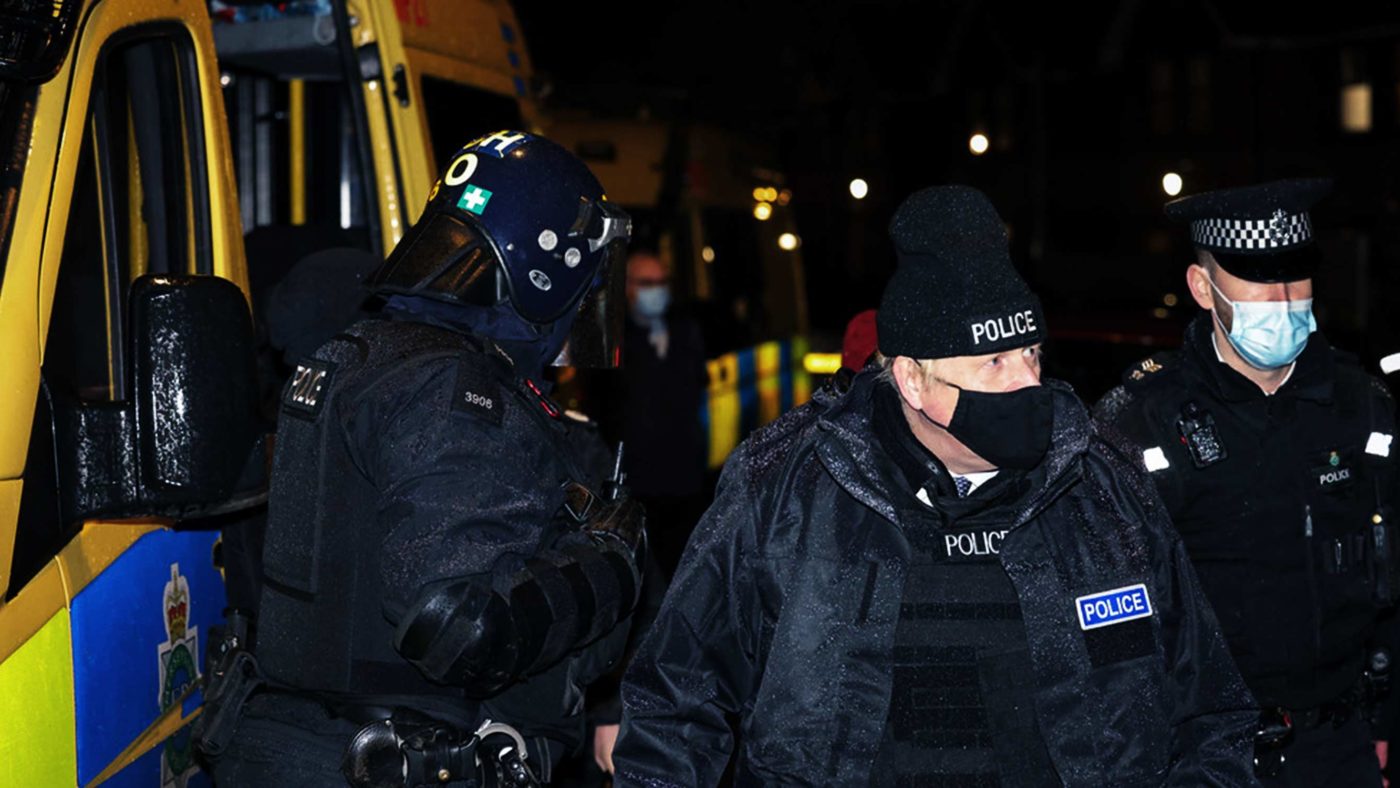It cannot just be the time-warping effects of the pandemic which make it seem far longer than two years since Boris Johnson was going to be a liberal Prime Minister. But here we are, back on the front lines of the ‘war on drugs’.
Even by the standards of that abysmal conflict, however, the promised crackdown on middle-class consumers seems to be almost entirely for show.
Yes, there are headline-grabbing reports that people caught in possession of Class A narcotics might end up having their passports or driving licences confiscated. But this is only if they refuse to attend a ‘drugs awareness course’. This will apparently be modelled on the speed awareness course, i.e. the thing that makes getting caught speeding basically fine – the first time, at least. A fearsome deterrent it is not.
Besides which, part of what it supposed to be so scandalous about middle-class drug use is how widespread and invisible it is. Expanding the use of drugs testing on arrest, and making it an aggravating factor if you have something in your system you shouldn’t, is merely a crackdown on the people who are already getting caught.
What are any of the mooted proposals going to do about the people who order their stuff by phone or online, get it delivered to their home, and then consume it in private or at least without causing trouble in public? Nothing.
The Prime Minister at least ruled out decriminalisation, which as I’ve argued before is something of a worst-of-both-worlds from a drug enforcement perspective, albeit for the uninspiring reason that it isn’t the best way to drive down consumption rather than simply that it is obviously mental to legalise the consumption of a profitable product but leave sale and distribution in criminal hands.
But it nonetheless represents a big missed opportunity. Although they don’t actually spot it, media coverage hints at what a more effective intervention could be. Here’s the Times:
“There are also more than 300,000 heroin and crack addicts in England who between them are responsible for nearly half of acquisitive crime, and drugs drive nearly half of all homicides.”
The words ‘crack and heroin’ appear several more times. They are the Punch and Judy of the moralists’ anti-narcotics caricature.
Yet despite their uniquely dangerous character, nowhere does anyone seem to come to the obvious realisation that putting these substances in the same category as those used by perfectly functional users (middle-class or otherwise) is ridiculous.
It is a fact that somebody can use many Class As, most obviously cocaine and MDMA (ecstasy), whilst remaining a productive and well-integrated member of society. This fact is one reason why the very concept of ‘Class A’, intended by the authorities to signal the most dangerous and frightening substances, is not taken seriously by people with any experience of those drugs.
Hell, even psychedelics such as LSD and mushrooms are Class A, and across all the decades British people have been taking the former it appears not to have killed a single one. The dangerous dose is so far beyond the effective dose it is basically impossible to take, even by accident.
Even if the Government lacked the imagination or the moral courage to consider legalisation, it could make the ‘war on drugs’ more effective and more worthwhile with a top-to-bottom reassessment of how it conducts it.
Ministers should concede that ‘drugs’ is a meaningless category that it is absurd to try and have a common policy towards. They should then commission a blank-page re-assessment of the classification system, with the goal of restricting Class A to crack, heroin, and any other substances that cause an equivalent level of harm to their users and society.
Even if you believe in prohibition and enforcement, it is grossly irresponsible to focus limited police resources on things such as MDMA, which can be recreationally consumed safely and whose users overwhelmingly don’t go on to commit crimes and otherwise cause trouble. For all the evils associated with the international trade in it, the same is basically true of cocaine.
But these people – the ones not causing trouble, the ones ‘getting away with it’ – are precisely who the Government means by ‘middle-class’ drug users. Thus, we need some eye-catching gestures in their direction, such as this passport nonsense.
But the ‘drugs awareness course’ seems a much better gauge of Johnson’s lack of seriousness on this front. The main ‘problem’ with ‘middle-class drug users’ is that they so rarely get caught. The Prime Minister has no new ideas for catching them; but he’s floated an intriguing way to let them off with a warning.
Click here to subscribe to our daily briefing – the best pieces from CapX and across the web.
CapX depends on the generosity of its readers. If you value what we do, please consider making a donation.


